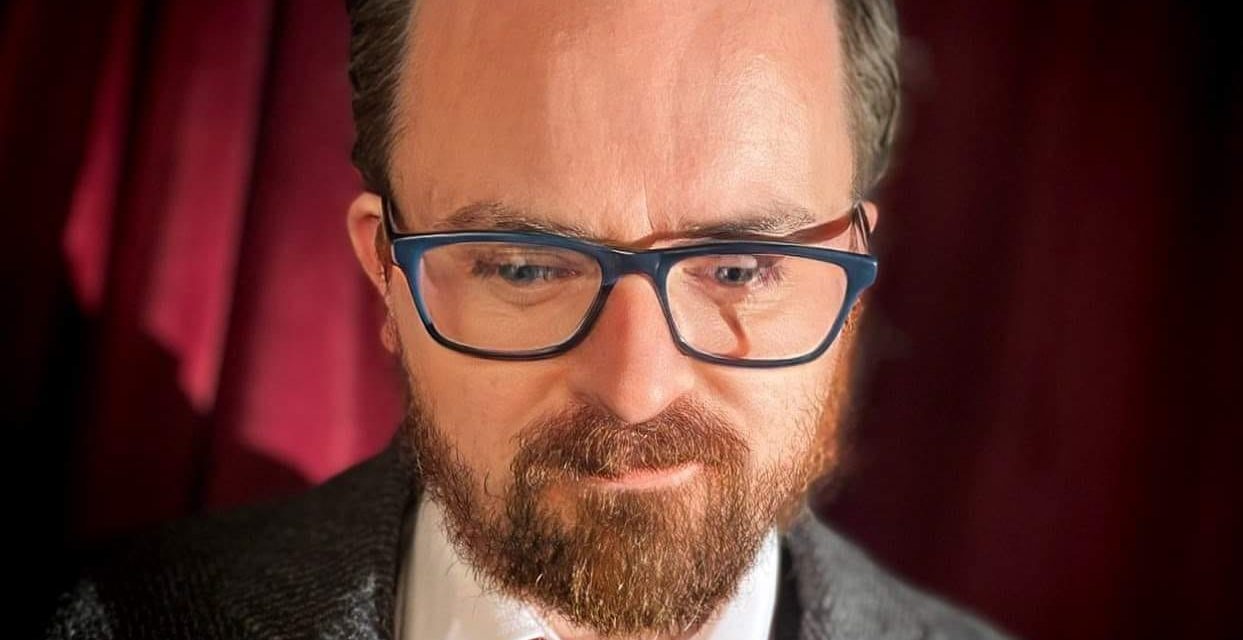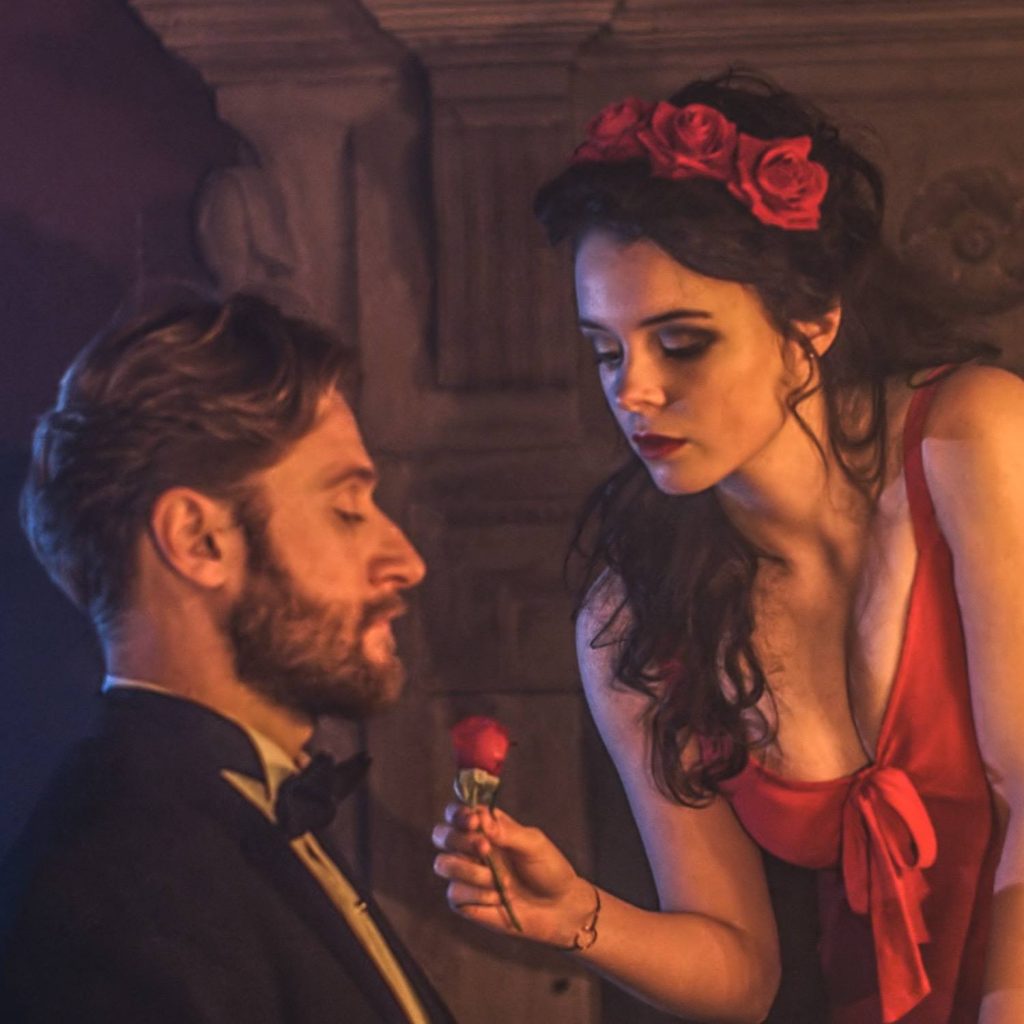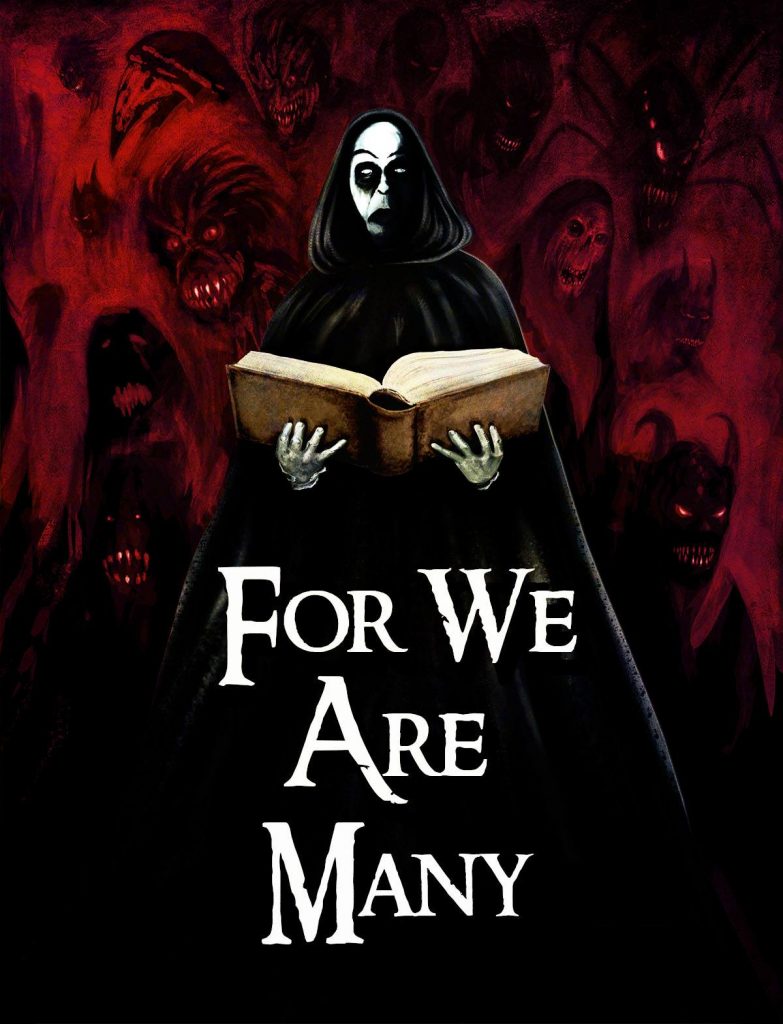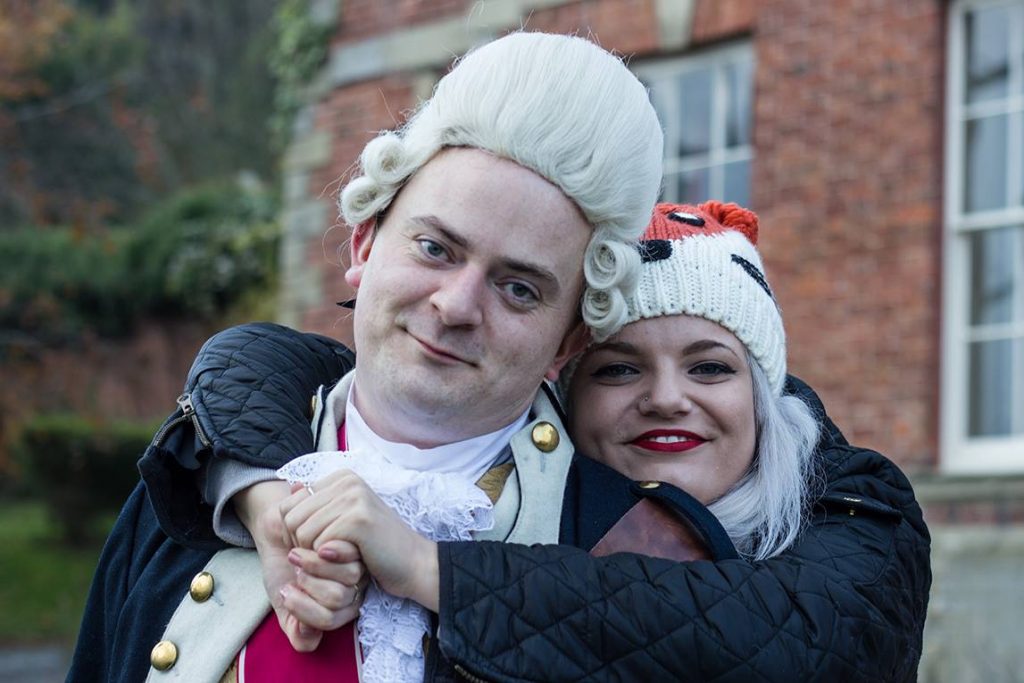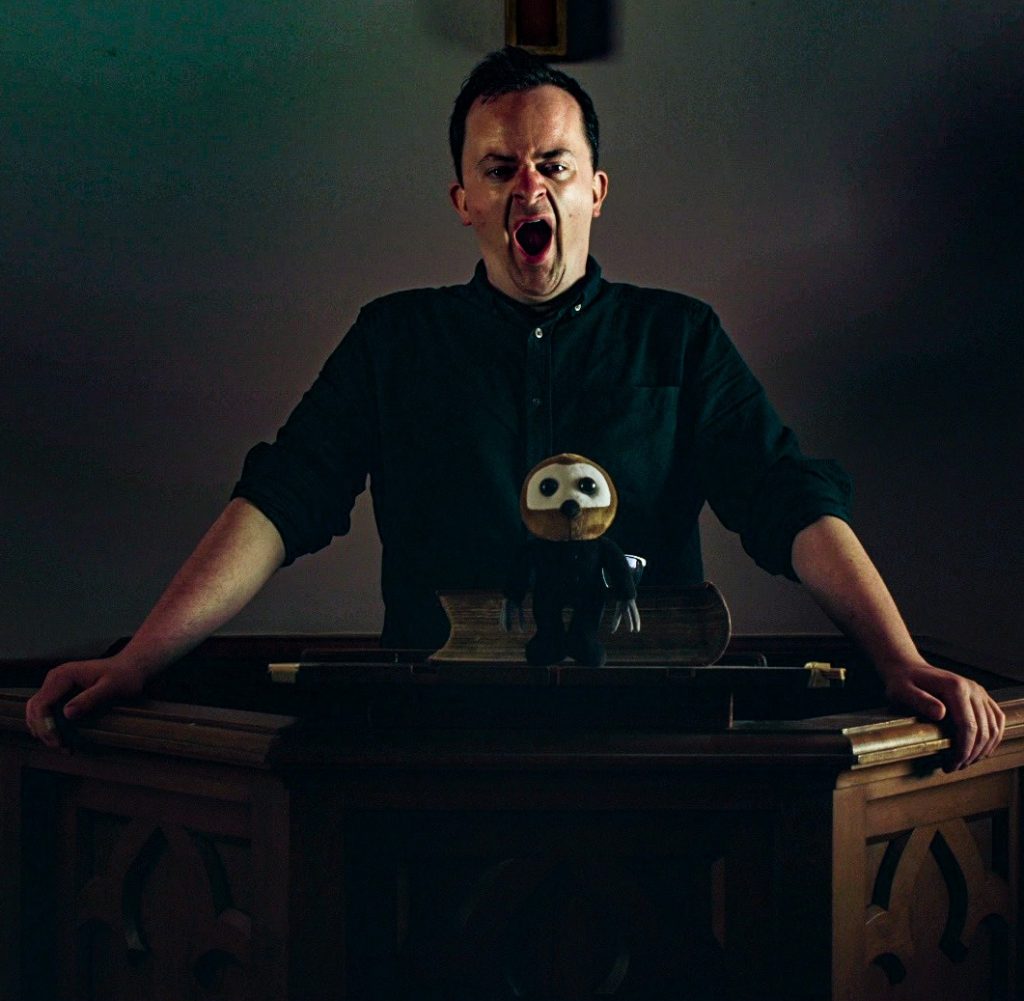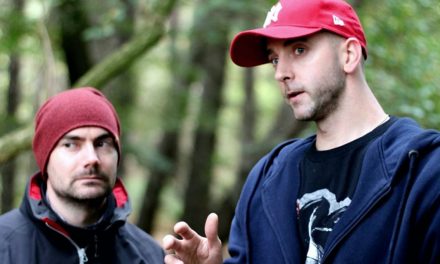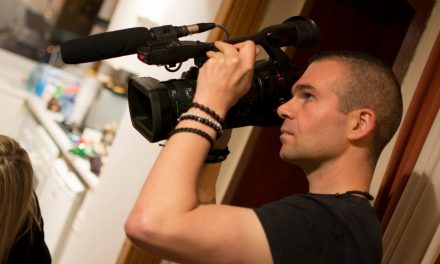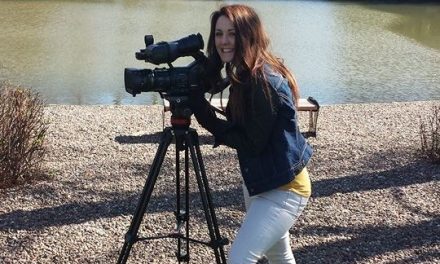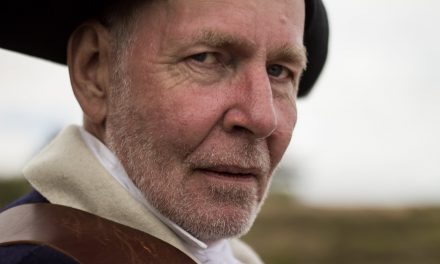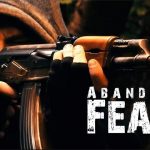Name: Thomas Staunton
Primary Skills: Writer, Director, Producer, Presenter
Irish filmmaker Thomas Staunton was inspired by horror filmmakers Hex Studios to pursue his filmmaker opportunities in Fife. Tom tells us about directing his first experiences on set, moving in front of camera and the importance of following your dreams.
Tell us a bit about yourself and your background.
I’m an Irishman from a lovely town called Tullamore, which is in the middle of Ireland. I’ve lived in Fife for the last four years.
How did you first get involved in the worlds of writing and filmmaking, and what made you want to stick with it?
I always wanted to be a filmmaker but I never did anything about it.
Around 4 or 5 years ago, my friends Sarah Daly and Lawrie Brewster encouraged me to move to Fife, and they would give me a crash course on how to be a filmmaker. It was an unbelievably generous offer and I stuck with it out of not wanting to return to my previous career!
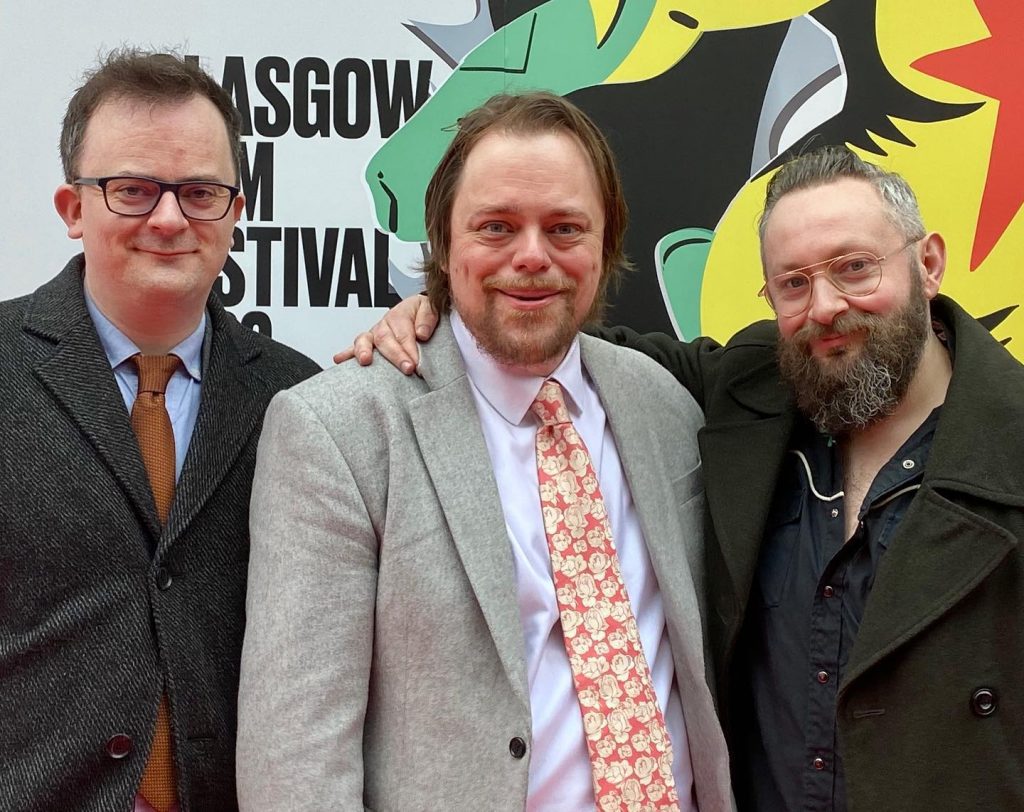
Tell us about your life and career outside of film, and what are the differences you’ve found between those worlds?
I lived in Dublin city from when I left school until I moved to Fife. Most of my career was spent working for an internet company. It was a nice steady job, until it wasn’t.
The differences are huge! My job back in Dublin was stable, consistent and repetitive. Filmmaking is dynamic, risky and you have to be willing to make big sacrifices. But it’s worth it and I’d rather deal with the stress of a job I love than one that I hate.
Tell us about your creative process. How do you like to develop your scripts and stories?
Most of my scripts and stories were developed out of Hex Studios projects I’ve been part of. I like having restrictions and rules. It motivates me to try and tell a story in the most economical way possible.
If I was left to my own devices, I’d probably never get anything done. Because I’m a big fan of horror, I’m usually inspired to write about stuff that keeps me awake at night. So I take that kernel of an idea and run with it.
What were your first experiences on a set like?
I worked on Lawrie Brewster and Sarah Daly’s film The Devil’s Machine. They were kind enough to offer me job as a production assistant. It was a small crew of like-minded people staying in a big country house in a beautiful part of Wales.
I had an amazing experience. The hours were long, and the work was very demanding but there was a sense of camaraderie which I never had in any other job.
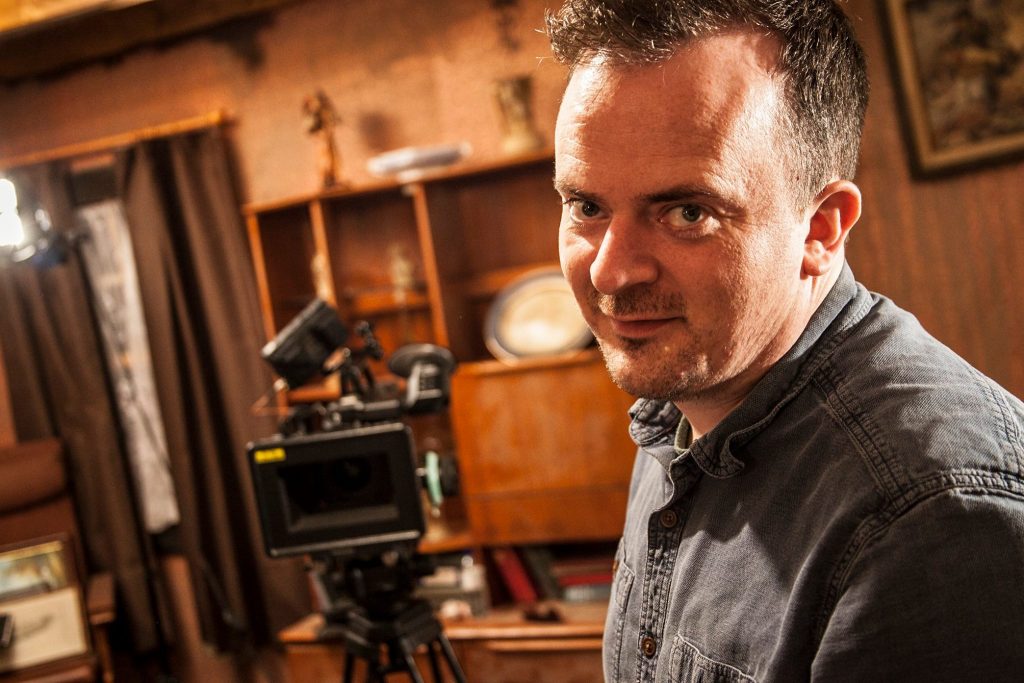
You’ve been involved in a number of projects over the years; what have been some of the highlights?
Seeing my scripts become actual short films and sketches has been a highlight. It was a humbling experience having all these talented artists help bring my stories to life.
You moved from Ireland to Fife to pursue filmmaking opportunities. What was it like to take that leap?
Terrifying! I think if I was in my early twenties it may not have been so bad, but I was 32 and used to a certain way of living. Quitting my job and leaving my family and friends behind was hard going. Obviously, Scotland is not a million miles from Ireland, geographically and culturally, so that helped soften the blow. But, I’m glad I did it.
You’ve often worked closely with Hex Studios. What’s it like being part of that world?
It’s inspiring! Hex Studios is essentially just three people, and they have made it their mission to never compromise on their independence or integrity, never be victimised by the malaise and cynicism that sometimes affects the film industry, and they’ve done that by learning what every cog in the film machine does, from the technical to the financial to the legal.
To do all that and be supportive, kind hearted and generous is no mean feat. I work hard because they do.
You’ve directed two shorts on the For We Are Many compilation from Hex. What is it like sitting in the director’s chair?
Oh god, I had no idea what I was doing. I was standing on the shoulders of far more experienced people, but I guess most directors do that anyway. You have to find a way of communicating what you want in the most effective and efficient way possible. You have to solve problems quickly and at the same time be thinking about the next scene. You have to get the right mix of being authoritative and benevolent or you’ll crumble. I’m still working on that!
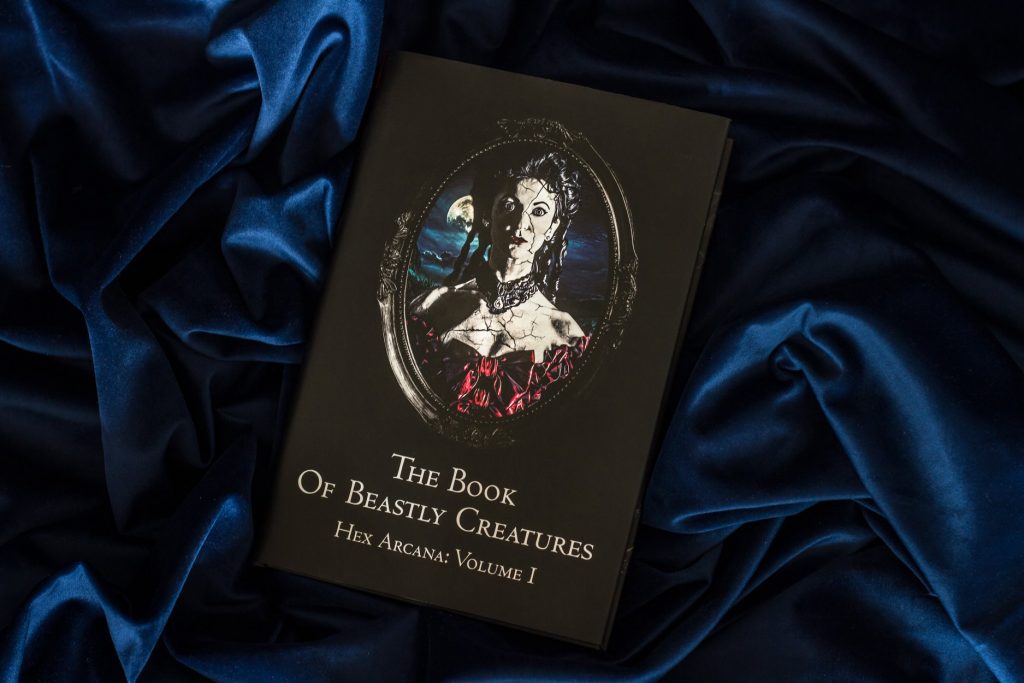
You’ve contributed short horror stories to the first Hex Arcana book which has just launched: The Book of Beastly Creatures. Tell us a bit about that process.
I was given six stories to write, a word count limit, and I had to come up with a unique and memorable monster for each one. That’s almost the perfect project to get, really. Most of the monsters were inspired by Irish myths and local legends, so once I had them formulated, I outlined the stories from start to finish and then I started writing.
You’ve also launched a regular mock series on Channel Hex, where you play the role of a hipster film reviewer. Tell us a bit about that series, and your experience of taking on a role in front of the camera.
The series came out of wanting to gently poke fun at certain film critics and their views on the horror genre. I play a very pretentious critic who has very lofty opinions of horror films, mixed in with funny sketches and scenarios.
I’m fairly comfortable with being in front of the camera, but that’s because it’s me behind the camera as well. I don’t have any crew watching my performance, so I’m less self-conscious. Once the video is put on YouTube, there’s nothing more you can do. Take the praise or take your lumps!
Now that you’ve often worked both behind the camera and in front of it, which do you prefer? Is there a benefit to having experience of both?
I haven’t decided which one I prefer. Sometimes it’s nice to be able to concentrate on your own performance, sometimes I’d rather be behind the camera and solving problems. It depends on my mood and the project.
It definitely helps to understand both. If you’re in front of the camera, you understand why a director might want you to go for another take, and if you’re behind the camera, you understand how that might tire or frustrate an actor.
You’ve been working mostly in the horror genre recently. Are there any other genres you’d like to explore?
Science fiction and comedy. They can also work really well when they’re mixed with horror!
What is your favourite thing about being on a set?
I love when something tricky has to be pulled off, like a practical effects shot. Sometimes, it has to be done in one take, because you don’t have any more resources or money. There’s a giddiness and anticipation on the set, waiting for the magic to happen. If it goes well, everyone is happy for the rest of the day.
How important do you think team chemistry is on set?
It’s extremely important. If there’s no chemistry, the whole shoot can become a miserable slog. You may still get a good film out of it, but I sometimes wonder if it’s worth it.
Tell us about some memorable moments from your career.
When I got to work on a film called The Black Gloves, we stayed in a big house in the Highlands. I couldn’t get over how beautiful the scenery was.
Having my two first short films become part of an horror anthology series release called For We Are Many alongside other filmmakers. It was exciting and an honour.
Above right: Thomas made his directing debut with two short films in For We Are Many (2019)
Have there been any roles you found particularly challenging?
Anything involving the more technical side of cameras and lighting. My brain switches off.
Do you have a project that you’re proudest of?
I’m very proud of my YouTube series on Channel Hex. I get to be silly and creative and learn how to be a better filmmaker.
Outside of the worlds of film, tell us a bit about the other ways you like to spend your time. Are there other ways you like to create and collaborate?
I love making music, on my own or with collaborators.
What are your thoughts on the filmmaking and arts communities, both in Fife and in Scotland as a whole? How does this compare with Ireland?
I think I’m a little too wet behind the ears to give you any kind of astute observations. Ireland has a lot more film studios and money, but hopefully that’s about to change in Scotland. Fife has a fair amount of creative people doing their own thing in their own bubbles and I’d love for them to get together more often.
Above right: Thomas in the pulpit with Hex Studios.
Many people say there aren’t enough opportunities for creative people in Fife. What are your own thoughts?
I’ve been living in the Kirkcaldy / Hex bubble since I moved here. I can certainly guess that there aren’t very many opportunities, but that appears to be a Scottish wide problem as well. Hopefully the Creative Film Fife Network will be part of helping make Fife a thriving filmmaking hub.
What projects are you hoping to do next?
Hopefully, once it is safe to do so, I’d like to begin making my first feature length film.
What words of advice would you give someone new to acting or filmmaking?
If you’re prepared to make personal and financial sacrifices, then I think you’ll be fine. Learn as much about the business side as you can, whether you’re in front of or behind the camera.
Your favourite film and why.
The Tree of Life by Terence Mallick. I haven’t seen it in nearly two years but I still think about it all the time. It’s profound and beautiful and pretentious and I love it.
Follow Thomas on Channel Hex on YouTube.

